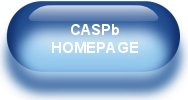Why critical appraisal?
Search strategies:
The volume of scientific evidence in the public domain on medical issues is overwhelming. A solution can be to use publications of criticized summaries (the ACP journal club, EBM, Clinical Evidence.org), or use databases such as the Cochrane Collaboration. In any case it will be necessary to have the ability to search for information in the classic biomedical databases (Medline, Embase etc). There are also technical studies that are not published or distributed by the habitual channels of scientific transmission. There are instances where medical literature is unavailable and in addition it grows exponentially. It is at this point that CASP workshops provide the skills necessary to formulate specific questions, and to make an efficient search of the available evidence necessary to make decisions in daily practice.
The main benefits of this activity are:
- It formulates your question correctly.
- Chooses the best resource.
- Designs a search strategy on the selected clinical question.
- Summarises the obtained evidence.
- Applies the evidence.
Critical reading:
If you have searched and found an article that appears to answer a clinical question, what is the added value of learning the principles of critical reading to evaluate the article? Although the volume of scientific literature grows enormously, the scientific quality of investigative articles is very varied. It is important to be able to identify the valid scientific tests to ensure that decisions made are the best ones in light of the present knowledge.
Critical reading is a technique that offers the opportunity to increase the effectiveness of our reading, acquiring the abilities necessary to quickly exclude articles that are bad quality, and to accept those with sufficient scientific quality.
We evaluate scientific articles in three steps:
- Can we trust the results? Are they valid? Judge the methodological value of the article. The criteria for validity of articles are different for different types of question: questions on treatment, diagnosis, prognosis and economic evaluation. Depending on the validity of an article we can classify it within a scale of levels of evidence and degrees of recommendation.
- What are the results? E.g. the intervention compared to the control shows a great effect, how they measure the effect, are the results valid.
- How pertinent or applicable are the results for my needs?
In order to help with the evaluation, we have designed crib sheets that guide us in the process of critical reading.

